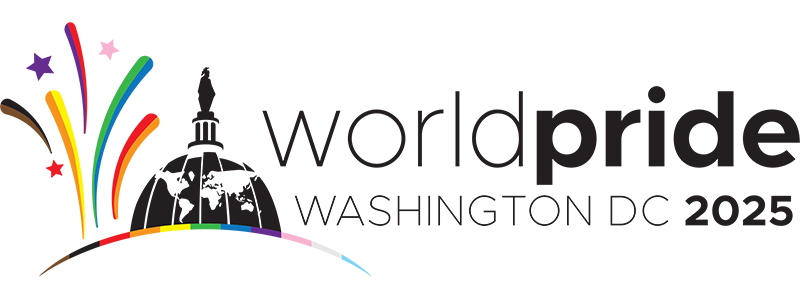Having Pride in Being Green
Capital Pride is Recommitting to Sustainability
Organizers and participants of Capital Pride are, together, taking concrete, achievable steps toward reducing and eliminating harmful environmental impacts from the events. This is an important step in laying the foundation for more impactful and incremental improvements over the coming years.
Questions or Comments?
Contact Brian Glasser, Executive Producer, Sustainability at Capital Pride at [email protected].
Goals
- Go above reduce, reuse, and recycle to reevaluate our default decisions and adopt both mandatory and voluntary environmental requirements.
- Reduce consumption at the source by moderating event materials.
- Source products that will diminish Capital Pride’s environmental impacts and ensure we support vendors and suppliers that are LGBTQ inclusive.
Contingent and Vendor Requirements
The following actions are mandatory for vendors and exhibitors at the festival:
- Distributing single-use plastic bags is prohibited.
- Distribution of polystyrene (Styrofoam™) products, plastic straws and stirs is prohibited. (District of Columbia requirement)
- Any packaging disposed of at the festival should be recyclable or compostable.
Failure to comply with these requirements may result in a fine and/or removal from Capital Pride events.
Guidelines
Vendors and exhibitors are encouraged to creatively and consciously make sustainable decisions for their booths.
- Promotional Products: avoid distributing single-use plastic products like disposable water bottles, balloons and beads, or other individually wrapped items. Consider more creative branding items like reusable water bottles, reusable straws, plant seed packs, drink coasters, towels or sweatbands, eco-tube lip balm, etc.
- Responsible Sourcing: Vendors and participants should research the environmental and social practices of suppliers. Support capital regional businesses to reduce shipping impacts and keep economic benefits local.
Parade
Throwables are items that parade floats toss to spectators. Historically, throwables have includes plastic beads, disposable water bottles, promotional pamphlets, etc.
Capital Pride discourages plastic beads and disposable water bottles as throwables. These plastic products have been shown to cause serious harm to marine ecosystems and have clogged DC street drains. While planning your organization’s parade contingent, be mindful of the environmental impacts of the materials you are using and distributing.
Capital Pride Initiatives
Capital Pride appreciates your cooperation in helping us make Pride a more sustainable event. The Capital Pride Alliance recognizes recommitting to sustainability will require effort from all parties involved. This document provides guidance for participants, but here are a few initiatives Capital Pride is undertaking in 2019 and hope to expand on in the future.
- Securing Renewables Energy Credits (RECs) to support renewable energy and offset the entirety of Capital Pride’s electric use with renewables.
- Engage the community through sustainability education initiatives, promoting sustainability efforts, and encouraging participation from environmental groups.
- Increased consultation with the DC Department of Energy and Environment.
- Composting pilot program.
- Waste and energy-use benchmarking.
Partner with Food Rescue US – DC
Make your Pride celebrations greener. WorldPride DC 2025 is partnering with Food Rescue US – DC, which connects businesses with surplus food to local nonprofits fighting hunger.
- Hotels and restaurants can donate prepared (but unserved) food through a coordinated volunteer network
- Reduce food waste, support local shelters and pantries, and get recognized as a sustainable partner
- Get started: foodrescue.us/dc
Individual efforts while attending Pride Events
Transportation
Visitors are encouraged to avoid driving to Pride events. Due to crowds and limited parking, if able, participants should walk or take public transportation to the festival. Reducing car trips will help reduce the event’s carbon footprint. Visit WMATA.com to plan your trip.
Reuse and Recycle
Refillable Water Bottles
Look for the huge blue tubs! The “Water Daddy”, the Pride alternative to bottled water will be available at the parade and festival. Fill up your own water bottle and cut-down on plastic waste.
Washington, DC Vision
The District of Columbia does not permit the sale or distribution of polystyrene (Styrofoam™) food service products, plastics straws or stirs. Alternatives should be compostable. More information about alternatives and the city’s guidelines for disposal can be found on the Mayor’s List of Recyclables and Compostables.
The District of Columbia has a goal of reducing plastic waste by 80% by 2032—Capital Pride and participants have an obligation to support the city in this effort. For more information on the city’s sustainability initiative, visit the DC Department of Energy and Environment (DOEE).
